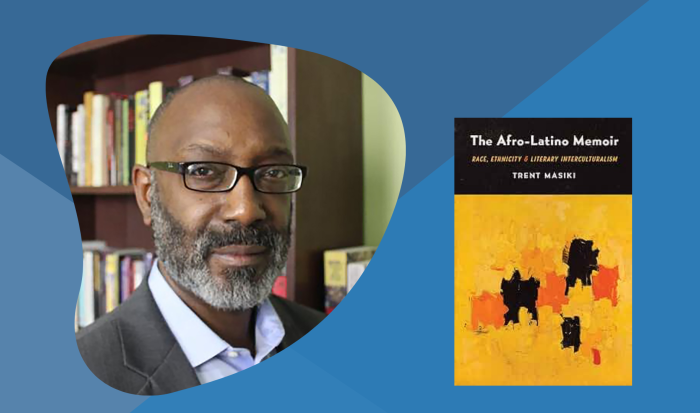
Former QCC professor Trent Masiki, Ph.D., returned to the college last month to discuss his first published book, "The Afro-Latino Memoir: Race, Ethnicity, and Literary Interculturalism," which won the Anna Julia Cooper & CLR James Book Award from the National Council for Studies.
"The Afro-Latino Memoir" explores the expansion of racial identity for both Latinos and African Americans through the analysis of five memoirs by Afro-Latin authors. Masiki has a literary background and said he wanted to delve into what hadn't been talked about yet, which included works by Raquel Cepeda, Veronica Chambers, Carlos Moore, Piri Thomas and Marta Moreno Vega.
The context for the book, Masiki explained, is the Afro-Latino presence in the United States starting with immigration from the Caribbean in the late 1800s, the Spanish-American War, Puerto Rico becoming a U.S. territory and the continued immigration to the United States from Africa, South America, the Caribbean since the late 1960s.
Masiki's research included reading each author's body of work as well as any public interviews so that he could be credible and efficient when he had the opportunity to directly speak with the authors. A theme that Masiki noticed was that the authors often looked to African-American writers when they were realizing their racial identity, which Masiki described as a type of literary ancestry. He also noted that several of the authors were coming of age in the post-soul era, a time in the late 1960s when soul music went out of popularity and hip-hop was born. This time period was marked by a tension between African-American culture being embraced, while Black people were still being socioeconomically and politically disadvantaged and incarcerated at high rates.
"In America, somebody has to occupy the bottom. So they assimilate, but America doesn't treat them as a full citizen. Coming into one’s identity is a political process, especially as a minority group. Just saying 'I am' is a political act," Masiki said.
Masiki gave students an insight into scholarly research by noting that coining a term can demonstrate the impact of your research if it starts to be utilized. In his book, Masiki uses his new term "afro-ethnic renewal," to define the idea that the definitions of "black" and "African-American" are being reconsidered over time, especially as new people from different regions of Africa immigrate to places around the world.
"The Afro-Latino Memoir" can be purchased through The University of North Carolina Press and other book retailers.
